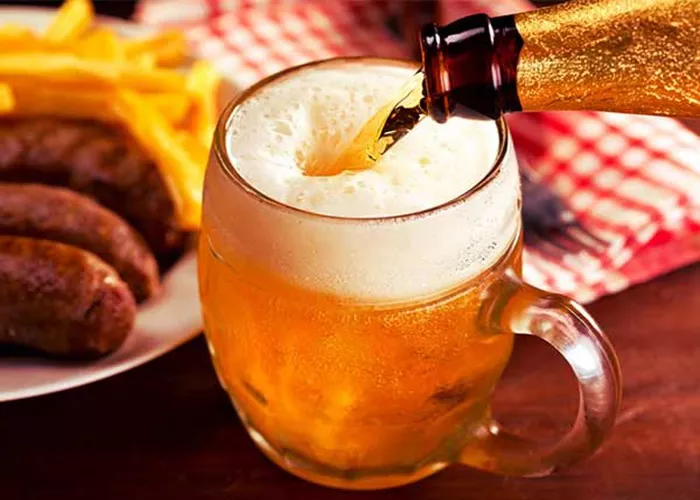Undergoing a heart stent procedure is a significant event in a person’s life. It often raises many questions about lifestyle changes, including whether it is safe to consume beer afterward. In this comprehensive guide, we will explore this topic in detail.
Understanding Heart Stents
1. What is a heart stent?
A heart stent is a small mesh tube that is inserted into a blocked or narrowed coronary artery to improve blood flow to the heart.
It helps relieve symptoms such as chest pain and shortness of breath and reduces the risk of a heart attack.
2. Why are heart stents used?
Heart stents are typically used to treat coronary artery disease, which occurs when the arteries that supply blood to the heart become narrowed or blocked due to the buildup of plaque.
The stent helps keep the artery open and allows blood to flow more freely.
3. Types of heart stents
There are different types of heart stents available, including bare-metal stents and drug-eluting stents.
Drug-eluting stents release medication over time to prevent the artery from reclosing.
The Impact of Alcohol on the Heart
1. How alcohol affects the heart
Moderate alcohol consumption has been associated with some potential benefits for the heart, such as increasing HDL (good) cholesterol and reducing the risk of heart disease.
However, excessive alcohol consumption can have harmful effects on the heart, including increasing blood pressure, causing irregular heart rhythms, and weakening the heart muscle.
2. Short-term and long-term effects of alcohol on the heart
In the short term, alcohol can cause a temporary increase in heart rate and blood pressure.
Long-term heavy drinking can lead to cardiomyopathy (enlargement and weakening of the heart muscle), arrhythmias (irregular heart rhythms), and an increased risk of heart failure.
3. Alcohol and heart stent patients
For people who have had a heart stent, the impact of alcohol can be more significant.
Alcohol can interact with medications taken after the stent procedure and increase the risk of complications.
Can You Drink Beer After a Heart Stent?
1. Risks and considerations
Drinking beer after a heart stent is a complex issue that depends on several factors, including the individual’s overall health, the type of stent used, and the medications they are taking.
There is a potential risk of alcohol interfering with the healing process after the stent placement and increasing the risk of complications.
2. Moderation is key
If a person decides to drink beer after a heart stent, moderation is crucial.
Generally, moderate alcohol consumption is defined as up to one drink per day for women and up to two drinks per day for men.
A standard drink is considered to be 12 ounces of beer.
3. Interaction with medications
Many medications are prescribed after a heart stent procedure, and alcohol can interact with these medications.
Some medications may increase the effects of alcohol, while others may be less effective when combined with alcohol.
It is important to consult with a healthcare provider to understand the potential interactions.
See Also: What Does Non Alcoholic Beer Taste Like?
Guidelines for Drinking Beer After a Heart Stent
1. Consult with a healthcare provider
Before consuming any alcohol after a heart stent, it is essential to consult with a healthcare provider.
They can assess the individual’s specific situation and provide personalized advice.
The healthcare provider may consider factors such as the patient’s overall health, medical history, and current medications.
2. Monitor your health
After having a heart stent, it is important to closely monitor your health, especially if you choose to drink beer.
Pay attention to any changes in symptoms such as chest pain, shortness of breath, or irregular heart rhythms.
If any new symptoms occur, seek medical attention immediately.
3. Choose low-alcohol beer
If you decide to drink beer after a heart stent, consider choosing low-alcohol options.
These beers have a lower alcohol content and may be less likely to have a significant impact on your health.
However, it is still important to consume them in moderation.
4. Consider non-alcoholic beer
Non-alcoholic beer can be a good alternative for those who want to enjoy the taste of beer without the alcohol.
It provides some of the flavors and sensations of regular beer but without the potential risks associated with alcohol consumption.
5. Balance with a healthy lifestyle
Drinking beer after a heart stent should be part of a balanced lifestyle.
Continue to follow a heart-healthy diet, exercise regularly, manage stress, and take your medications as prescribed.
A healthy lifestyle can help reduce the risk of complications and improve overall heart health.
Alternatives to Drinking Beer
1. Non-alcoholic beverages
There are many non-alcoholic beverage options available that can be enjoyed instead of beer.
Water, unsweetened tea, coffee, and fruit juices are all good choices.
These beverages can help keep you hydrated and provide other health benefits.
2. Social activities without alcohol
Participating in social activities that do not involve alcohol can be a great way to stay connected with others without the potential risks of drinking.
Consider activities such as going for a walk, having a picnic, or attending a movie or concert.
3. Explore new hobbies
Use this time to explore new hobbies or activities that do not involve alcohol consumption.
This could include reading, painting, gardening, or taking up a new sport.
Finding alternative ways to relax and have fun can help reduce the desire to drink beer.
Conclusion
In conclusion, drinking beer after a heart stent is a decision that should be made in consultation with a healthcare provider. While moderate alcohol consumption may be possible for some individuals, it is important to consider the potential risks and follow guidelines to ensure your safety. Remember to monitor your health closely, choose low-alcohol or non-alcoholic options if you do drink, and balance beer consumption with a healthy lifestyle. By making informed choices, you can enjoy life after a heart stent while minimizing the risk of complications.
You might be interested


